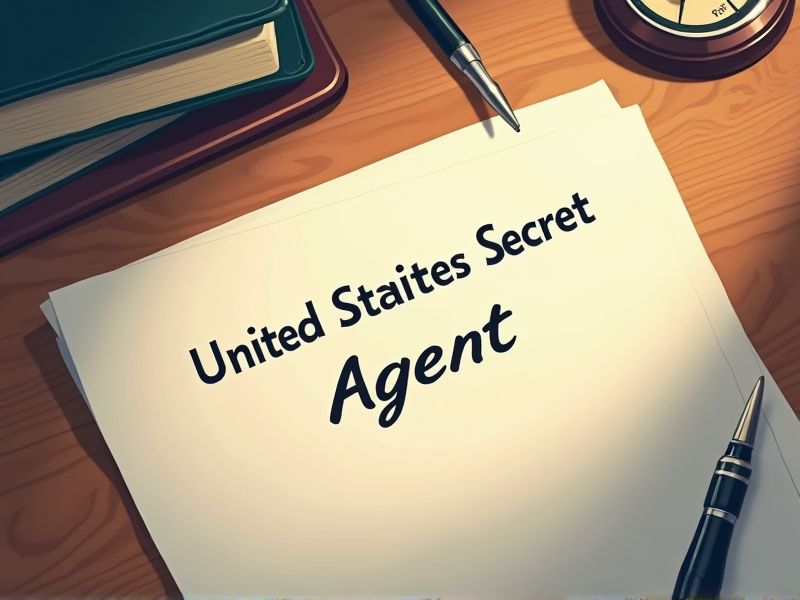
United States Secret Service Agents operate in high-stakes environments that demand precision and a high level of skill. Certain certifications ensure agents possess the necessary knowledge in areas such as cybersecurity, law enforcement, and emergency response. These certifications validate the ability to handle sensitive situations and protect national leaders and assets effectively. Here are some critical certifications required for a United States Secret Service Agent.
U.S. Secret Service Special Agent Training Certification
The U.S. Secret Service Special Agent Training Certification provides agents with essential skills in investigations, protection, and emergency response. Rigorous training ensures that agents are equipped to handle high-pressure situations involving national security. Certification serves as a standard measure to maintain consistency and professionalism across the organization. Comprehensive training supports agents in adapting to evolving threats and technological advancements.
Federal Law Enforcement Training Center (FLETC) Basic Special Agent Course Certification
The FLETC Basic Special Agent Course Certification ensures that Secret Service agents receive standardized and comprehensive training in core law enforcement skills. This certification provides agents with the necessary proficiency in areas like investigative techniques, firearms handling, and defensive tactics, which are critical for the safety and effectiveness of their duties. Attending FLETC facilitates the development of a foundational set of skills and a shared understanding among agents from various federal agencies, promoting coordinated federal responses to threats. Consistent training standards help maintain the integrity and preparedness of the Secret Service, crucial for their high-stakes responsibility of protecting national leaders and safeguarding financial infrastructure.
Law Enforcement Officer Standards and Training (POST) Certification
Meeting the Law Enforcement Officer Standards and Training (POST) certification is crucial because it ensures Secret Service agents possess essential law enforcement skills and adhere to professional standards. This certification validates their capability to perform complex duties such as investigations and protection of high-profile individuals. Training programs under POST focus on critical areas like firearms proficiency, legal principles, and physical fitness, which are integral to Secret Service responsibilities. Compliance with these standards fosters trust from the public and other law enforcement agencies, reinforcing collaborative efforts in national security.
Firearms Proficiency Certification
The Firearms Proficiency Certification is essential for United States Secret Service Agents because their role often involves direct protection of high-profile individuals where quick and accurate response to threats is critical. Certification ensures agents can handle firearms safely and effectively, reducing the risk of unintended harm in unpredictable situations. It also serves to maintain high standards across the agency, ensuring all personnel are equally prepared for firearms-related duties. Regular recertification keeps agents updated with the latest techniques and legal standards, aligning with evolving security challenges.
Defensive Tactics Certification
The United States Secret Service Agent needs Defensive Tactics Certification to enhance their ability to protect high-ranking officials against potential threats. This certification provides agents with advanced skills in hand-to-hand combat, essential for managing situations where firearms are not practical. Agents often encounter unpredictable scenarios, requiring them to neutralize threats swiftly and safely while maintaining control. An official certification ensures standardization in training, ensuring every agent meets the agency's strict operational requirements.
Emergency Medical Technician (EMT) Certification
The Emergency Medical Technician (EMT) certification equips United States Secret Service Agents with essential medical skills to respond swiftly during critical incidents. In high-risk environments, agents often encounter situations requiring immediate medical intervention to stabilize individuals before further medical help arrives. This certification enhances an agent's versatility, enabling them to manage varied threat scenarios effectively. Possessing EMT knowledge ensures agents can offer essential medical support, safeguarding both public figures and the general populace.
Crisis Negotiation Certification
Crisis negotiation certification equips Secret Service agents with advanced communication strategies essential for de-escalating high-stakes situations. The certification provides specialized training to assess threats accurately and maintain control during potential hostage situations or threats against protected individuals. Enhanced negotiation skills contribute to an agent's ability to resolve incidents peacefully, reducing the need for force and potential harm. In-depth understanding of psychological tactics enhances the agents' effectiveness in safeguarding national leaders and ensuring public safety.
Intelligence Collection and Analysis Certification
The Intelligence Collection and Analysis Certification equips Secret Service agents with critical skills to assess and predict threats effectively. Enhanced analytical abilities improve agents' decision-making in high-stress environments. Certification ensures agents can utilize advanced technologies and methodologies pivotal for national security. It bolsters the agency's capacity to safeguard national leaders and infrastructures through precise intelligence operations.
Cybersecurity Certification (e.g., CISSP or CompTIA Security+)
The complexity of modern cyber threats necessitates that a United States Secret Service Agent possesses cybersecurity certification, like the CISSP or CompTIA Security+, to effectively safeguard national digital infrastructures. As cybercrime continues to evolve, possessing recognized certification ensures agents are equipped with updated knowledge and skills for proactive threat mitigation. Ensuring agents have formal cybersecurity expertise enhances the agency's credibility and capability in technology-driven investigations. Given their role in protecting leaders and financial systems, agents with such certifications can better manage and respond to cyber incidents, securing sensitive information from adversaries.
Counterterrorism and Threat Assessment Certification
Individuals pursuing a role as a United States Secret Service Agent must obtain Counterterrorism and Threat Assessment Certification to effectively safeguard national leaders against ever-evolving terrorist strategies. The certification equips agents with critical skills to identify and neutralize threats before they materialize, ensuring the safety of protected individuals. Data shows that globally, terrorist threats are increasingly sophisticated, necessitating advanced training for effective countermeasures. Enhanced threat assessment capabilities help maintain national security and reassure public confidence in protective services.
Summary
When you pursue certifications as a U.S. Secret Service Agent, you enhance your expertise in specialized areas like cyber security, financial fraud, or protective intelligence. Certification leads to increased job performance and expanded capabilities in handling complex threats and investigations. Your career growth opportunities improve, as holding certifications usually results in competitive advantages for promotions. The agency benefits from a pool of highly skilled agents, driving more effective and efficient national security operations.
